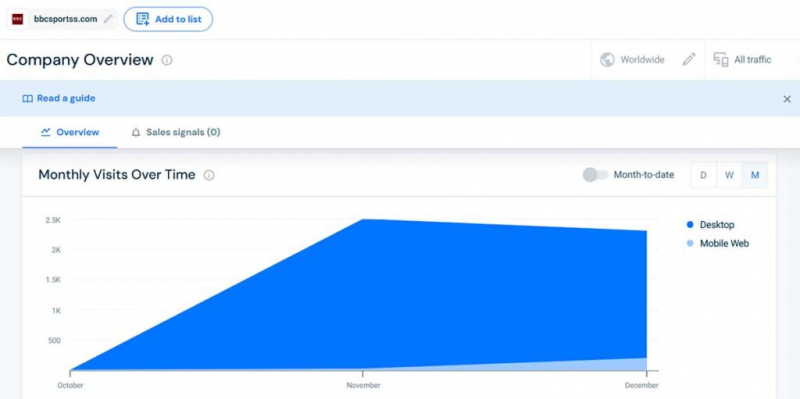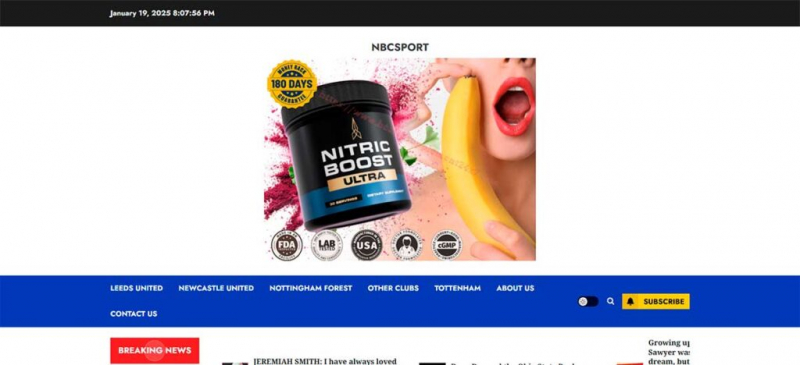A new report shows how an AI content factory with hundreds of websites earns money from media advertising, including from world-famous brands, mimicking major media outlets.
The next time you read sports news on the Internet, double check the URL you are at…

Recommendation of the month: Telega.in — native integration platform in Telegram channels. Manually verified channels and bots. We help you find your target audience on Telegram and launch effective integrations.
- The growth rate of AI farms is doubling
- Synthetic Echo Webmaster Group
- Major media they use AI themselves
- Monetization through advertising networks
- A double blow to major media
AI growth rates-farms are doubling down
The headline “Red Sox strongly recommend rejecting Alex Bregman in favor of a $427 million superstar” looks quite ordinary, and at first glance it seems that it was published in BBC Sports. But upon closer inspection, it turns out that you are on a fake called “BBCSportss”, and the text itself is taken from Sports Illustrated.
In other places on this site, you will also find stories that are not directly stolen from another author, but look like a random remix of what various sports bloggers wrote, and seem to be generated by artificial intelligence.

DoubleVerify, an online advertising tracking and media analytics platform, recently analyzed a group of more than 200 such sites filled with a mixture of AI-generated content and fragments of news articles taken from real THE media.
According to the analysis, these projects often chose domain names and designed their websites so that they mimic the websites of well-known media brands, including ESPN, NBC, Fox, CBS and BBC. Many of the fakes look like legitimate sports news.
Sports Illustrated representative Paige Graham:
We did not approve of the BBC Sportss content, and it is actually plagiarism.
Marketing Director of DoubleVerify, Dan Sliwianowski:
We see that the growth rate of fraudulent schemes doubles or triples from year to year. Most of these fraudulent schemes are aimed at making bots consume content, not just create it, by increasing the number of page views on websites in order to generate advertising revenue, creating the appearance of increasing the number of live readers.
But DoubleVerify has also noticed a surge in fraudulent schemes using AI farms, in which networks of websites are filled with content created by artificial intelligence in order to take away real readers and advertising revenue from real publications.

The screenshot above shows an example of traffic from one of these sites (and not the most prominent one). 2,500 sessions per month wouldn’t seem like much. But imagine that you have 100 such sites. That’s already 250,000 visitors per month. And if there are 1,000 sites…
And there are quite a lot of ways to monetize here: starting with the sale of links to “promising, developing media” through various exchanges and ending with the sale of the site itself. Not to mention the CPA affiliate programs.
The Synthetic Echo group of webmasters
DoubleVerify noticed that the group, which they call “Synthetic Echo”, seems to either copy content from other sites or use stories generated by artificial intelligence. or it combines both.
Gilit Saporta, Head of the Fraud Investigation Department:
It’s not even fake news. It’s just random garbage.
Although this is not the only fraud scheme that Saporta has observed, she finds this one particularly notable for how obviously interconnected many of its constituent elements are, often transferring the same web design options from one site to another.
Another example: NBC Sportz. Content is stolen from othersmedia sites, rewritten by real people, with the removal of all original identification marks, and published by NBC Sportz.
One of the sites deceived in this way was the Detroit Free Press, which confirmed that it had not given permission to reprint the works of its authors.
Representative of the Detroit Free Press, Lark-Marie Anton:
This content has not been licensed by the Detroit Free Press and does not represent our brand or journalism.
The company plans to go to court.
Here are two more examples: NBCSport.co.uk and BBCSportss.co.uk . All the texts here are generated by artificial intelligence, which confirms DoubleVerify’s conclusions.
No one NBCSport.co.uk , neither have BBCSportss.co.uk there is no email address or other contact information associated with them. Like NBC Sportz or a website imitating CBS News, they are registered through Namecheap.

For many years, hackers have been trying to use successful media outlets by reprinting their work without permission. However, artificial intelligence tools are now allowing variations of this scheme to spread at a new rate.
Gilit Saporta:
Such low-quality content is actually not new. But it’s much easier to reproduce and scale using modern tools.
The number of AI sites has been increasing dramatically from year to year since generative AI tools became popular in 2023. In February last year, NewsGuard, a media monitoring company, discovered 725 news and information sites filled with AI content. By January 2025, it had identified at least 1,150 such sites.
PaulShuvik, Chief Operating Officer of Copyleaks, an AI discovery company:
Volume increased. Many of them work abroad and are very secretive, so how can you keep up with them?
Large media outlets themselves use AI
Even more confusing for the average media reader is the fact that large media sites are experimenting with publishing news articles generated by artificial intelligence.
Sports Illustrated magazine itself published materials generated by artificial intelligence, which, according to its parent company, were provided by a third party.
In other cases, scammers buy up the domains of media outlets going through hard times and revive them as AI content factories, sometimes replacing previously sound journalism with robotic bullshit.
Some of these sites are already causing confusion in the real world: in October, one of the companies involved in creating SEO content posted an ad generated by artificial intelligence about the Halloween parade in Dublin (Ireland). Despite the fact that such an event was not planned, crowds of people came, expecting a celebration.
Some of these sites are “glued” to the corporate identity of real publications in order to sell garbage. This is something like phishing.
In some cases, these sites do seem to be engaged in phishing. One of the sites included in the DoubleVerify analysis was created to mimic the Fox news channel, based in Nigeria. He greets potential readers with a series of suspicious pop-up ads for the sale of software.
Monetization through advertising networks
Although pop-ups look like a hoax, sites from this group seem to make good money from ads that are placed using large automated tools rather than direct relationships between specific sites and advertisers. Many of them contain a variety of banners operated by popular advertising networks such as Criteo and Sharethrough.

The DoubleVerify report suggests that the owners of Synthetic Echo have chosen sports as one of the leading content categories precisely because it is considered safer for brands than classic news.
During the monitoring, advertisements from a number of well-known companies appeared on these sites, including technology market leaders such as Asana and Oracle, a major representative of e-commerce Net-A-Porter, cosmetics industry giant Sephora and the Kalahari Resorts resort chain.
A double blow to major media
At a time when trust in the media has plummeted and the revenues of many news outlets have declined, this type of content production farms is a double whammy. It pollutes the information ecosystem with junk and stolen materials, as well as takes away advertising revenue from legitimate content producers.
